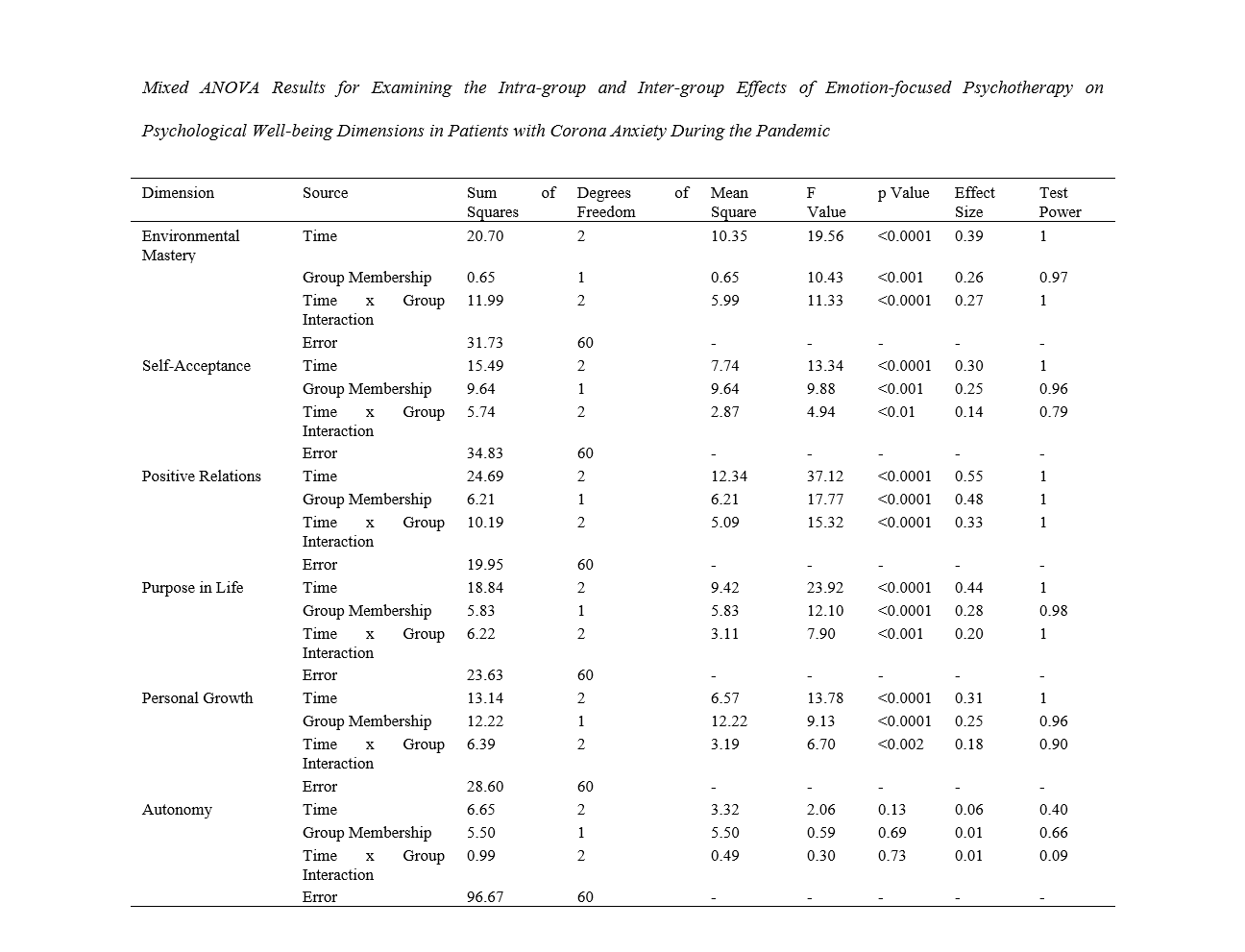The Efficacy of Emotion-Focused Psychotherapy on Perceived Stress and Psychological Well-being in Patients with Corona Anxiety during the Pandemic
Abstract
Objective: The present study aimed to investigate the efficacy of emotion-focused psychotherapy on perceived stress and psychological well-being in patients with corona anxiety during the pandemic.
Methods and Materials: This research was conducted using a quasi-experimental design with a pre-test, post-test, and a control group, along with a three-month follow-up period. The study population consisted of individuals suffering from corona anxiety who had contacted counseling centers in Isfahan for telephone counseling during the summer of 2021. Out of the study population, 33 individuals were selected through purposive sampling and randomly assigned to either the experimental or control group. Participants in the experimental group received emotion-focused psychotherapy over two months. The instruments used in this research included the Perceived Stress Scale (Cohen et al., 1983) (PSS), the Psychological Well-Being Questionnaire (Ryff, 1988) (PWBQ), and the Corona Disease Anxiety Scale (Alipour et al., 2019) (CDAS). The data were analyzed using mixed ANOVA with SPSS version 23.
Findings: The results indicated that emotion-focused psychotherapy had a significant effect on perceived stress (P<0.0001; Eta=0.59; F=44.99) and psychological well-being (P<0.0001; Eta=0.68; F=66.28) in patients with corona anxiety.
Conclusion: Based on the findings of the current study, emotion-focused psychotherapy, utilizing techniques of emotional awareness, emotional experience, regulation, transformation, and change, can be an effective method for reducing perceived stress and improving psychological well-being in patients with corona anxiety.
Downloads

Downloads
Additional Files
Published
Submitted
Revised
Accepted
Issue
Section
License
Copyright (c) 2024 Tahereh Bakhshandeh Amnieh (Author); Zohreh Raeisi (Corresponding Author); Zohre Ranjbarkohan , Hassan Khoshakhlagh (Author)

This work is licensed under a Creative Commons Attribution-NonCommercial 4.0 International License.








